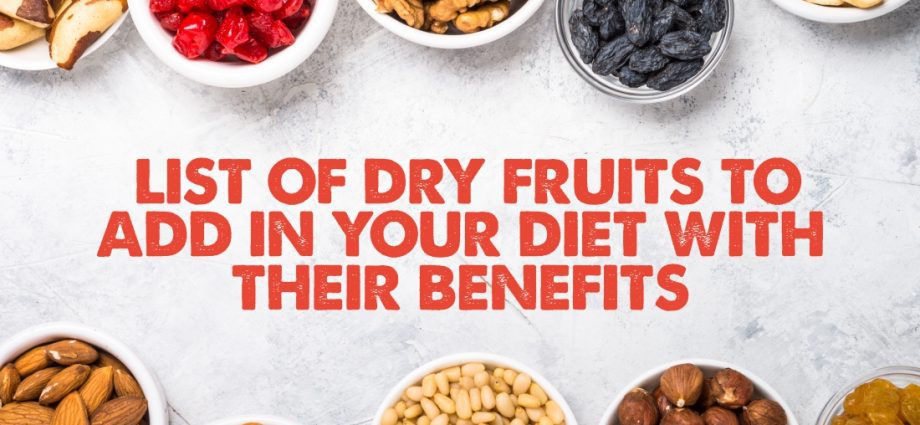Contents
Our favorite dried fruits have been known since childhood, when in winter one of the most delicious and healthy sources of vitamins is dried fruits and compote from them. When the fruits were picked in the summer and dried under the rays of the warm, summer sun, covered with gauze from insects. Then, of course, the compote of these dried fruits cooked in winter was a truly healing drink.
But, unfortunately, over time and the beginning of global industrialization, the production of dried fruits has become a stream with all the ensuing consequences. After industrial drying, such a “dead” fruit consists of sugar and residues of harmful chemicals, and the fruits are selected worse.
According to GOST[1] chemical treatment of fruits is required to kill bacteria and increase their shelf life. For example, dried apricots and figs must be treated with dilute sulfuric acid, and grapes with alkali. Almost all light golden yellow raisins on the shelves of our stores are treated with sulfur dioxide. After all, not everyone knows that naturally dried raisins from grapes of light varieties are light brown in color. Of course, the doses of these substances are agreed with the Ministry of Health, but the implementation of these standards is very difficult to control on a national scale. And it is almost impossible to check every “gray” manufacturer. And they often add chemical dyes and even flavors to figs, dried apricots and other dried fruits.
The so-called candied fruits, exotic dried fruits, are in great demand. According to technology, they must be soaked in sugar syrups to be sweeter. But most of them are processed not even with sugar (we will talk about its effect on the body in future articles), but with a cheaper and more harmful substitute for it – glucose-fruit syrup, which is made from corn starch. Unlike sugar, it does not cause an increase in insulin in the blood, and does not affect the production of the hormone leptin, which is responsible for the feeling of satiety from food eaten and regulates energy metabolism. Such a syrup is used as a cheap substitute for sugar in the production of sugary carbonated drinks, juices, pastries, ice cream, sauces, ketchups, etc.
In your favorite dried fruit compote, you can find an excess of sulfuric acid used during improper drying. This substance is especially harmful to children.
Therefore, avoid dried fruits if any chemicals are mentioned on the package. Most often, this is the preservative E220 – sulfur dioxide, which is used in instant cereals, yogurt, wine. Overdose may cause suffocation, speech disorder, difficulty swallowing, vomiting.
Be sure to pay attention to the name of the manufacturer. Try not to buy dried fruits by weight from unverified people.
The benefits of dried fruits
Organically grown and dried without the use of chemicals, eco-dried fruits are slightly more expensive than conventional ones. But you will not doubt their benefits, as any nutritionist will tell you.
Firstly, such fruits are high in fiber, and its content is also high in vegetables and sprouted grains. It stimulates the digestive system and improves metabolism.
Secondly, the content of minerals and vitamins is even higher than in fresh fruits. They contain a lot of iron (improves blood formation), potassium (normalizes blood pressure), and B vitamins. All of them are necessary for the normal functioning of the brain, nervous system, heart and muscles. Eating dried fruits does not cause an increase in insulin levels in the blood, thereby reducing the likelihood of obesity. Dried fruits have the lowest glycemic index – dried apricots, apples, prunes. Average glycemic index for dates and raisins.
Raisins are very useful for teeth and oral cavity. It contains substances that inhibit the multiplication of many bacteria in the human mouth. The use of raisins is a good prevention of periodontal disease.
Candied fruits have a general strengthening effect, activate protein metabolism.
Dates increase energy levels and increase efficiency, contain vitamins B5, E and H.
Pears normalize bowel function, helping to eliminate toxins from the body.
Dried apricots have a positive effect on the heart. Contains potassium, calcium, carotene, phosphorus, iron and vitamin B5.
Figs protect the thyroid gland, remove intestinal parasites.
Prunes also have a beneficial effect on the gastrointestinal tract, helping to fight constipation and normalize the functioning of the entire system. In addition, it is useful for heart problems, high blood pressure; kidney disease, rheumatism, liver disease and atherosclerosis.
Nutritional value and calorie content of dried fruits
| Product | Energy value, kcal | Proteins, g | Fat, g | Carbohydrates, g |
|---|---|---|---|---|
| Cherry | 292 | 1,5 | 0 | 73,0 |
| Pear | 246 | 2,3 | 0 | 62,1 |
| Raisins | 279 | 2,3 | 0 | 71,2 |
| Dried | 272 | 5,2 | 0 | 65,9 |
| peaches | 275 | 3,0 | 0 | 68,5 |
| prunes | 264 | 2,3 | 0 | 65,6 |
| Apples | 273 | 3,2 | 0 | 68,0 |
How to choose the right dried fruits
natural color
Quality dried fruits, as a rule, have an unattractive appearance. They are dark and wrinkled. Too bright color indicates that they were most likely treated with food coloring or sulfur dioxide. Fruit must be free of mold and rot.
regular taste
When buying dried fruits, smell them well. To increase the speed and volume of production, prunes, dried apricots and raisins are dried in gasoline or gas ovens, after which they taste like gasoline, carcinogens settle on them, and all vitamins and enzymes are destroyed.
Try to buy dates with stones, and raisins and prunes with stalks.
Lack of shine
Prunes are often soaked in cheap vegetable oil or treated with glycerin so that the berries have a beautiful shine and are soft.
- Sources of
- ↑ StandartGOST.ru – GOSTs and standards










